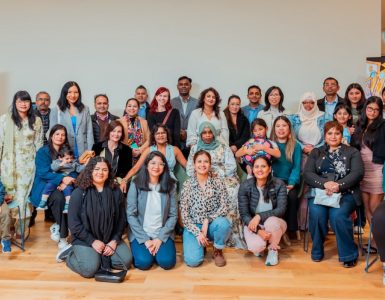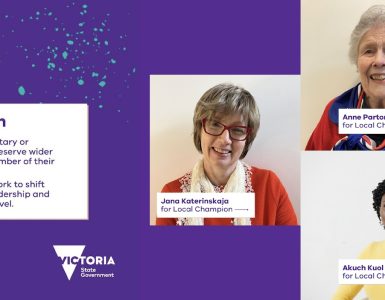Niru Tripathi, Editor in Chief asked me to speak of the barriers faced by writers from migrant backgrounds, or as we say in Australia from Culturally and Linguistically Diverse (CALD) communities. I hesitated because I have been fortunate. I grew up with a mother who had struggled for education. As I result, I went to the best schools and university colleges in India, had a scholarship to the United States and completed my PhD in Australia.
I also grew up passionately proud of being Indian. I have been blessed in my deep friendships in India, Malaysia and Australia. Education, pride in my culture and myself and family support helped me negotiate the challenges of migration and economic abuse.
I am grateful my sons have grown up to be kind and have a moral compass.
So, when I see the other writers in the room, I am humbled by the challenges some of them have faced with struggles with English, huge responsibilities to family back home, difficulties finding jobs that reflect their abilities and with health.
However, there is one thing I do share with them – the loneliness of migration. There have been many times I wished I had never left India. I hungered for the sound of my language, my music, for the loss of shared history and biography. The laughter shared with kin, laughter so loud and long that neighbours would want to come and share. Here, there is only one friend who knew me in India and only one who knew of me in Malaysia.
When I wear a patola saree from Orissa, I wear it for myself. It sends no signal to the viewer to tell of the history of the weave, the quality of the silk. I do not often wear my Indian jewellery for who would recognise kundan? I have only now begun to make kanji, the fermented drink of black carrots and brown mustard.
When I first went to the Sikh Gurdwara in Melbourne, for weeks I sat alone, as I did not have a shared context of family and village. When I returned from a visit to India and my son who lives in Melbourne was away, I told one of my Australian friends to come to the airport to receive me. Leaving family in India to be alone in Melbourne was physically gut wrenching.
At a welcome home lunch when I told a friend and her father about this, they immediately said, ‘But we are your family’. Even this deep a friendship could not cut through the intense aloneness of grief when my mother died 27 years ago and when my sister died three years ago. To this day, when I see king parrots in my garden in Eltham, I feel glad, for in the intensity of grief, these birds were a comforting presence. And after my sister’s death I retreated to my garden and writing for there I could be still.
I suspect our writing comes from this loneliness.
I was a writer before I became an academic. I became a writer for I wanted to share my joy in my boys and the adventurer of living in Borneo. I began to write because nobody in India or Borneo knew all of me. Later, I wrote under the tutelage of a wonderful newspaper editor and colleagues who taught me to use words sparely and with care.
My personal writing has come from this loneliness in Malaysia and Australia. Grief and loneliness were behind my need to write The girls ate last and A house over the Diamond Creek.
The experience of migration suffuses my academic work on migration, money and family. I am fortunate to be a sociologist for the sociological imagination links personal troubles to social issues. In my academic work I also tell people’s stories. In some of their stories, I recognise mine.
My latest book Domestic Economic Abuse: The Violence of money was triggered by one woman’s story. I asked about her experience as a student migrant. As she told her story, she started crying. She told how her husband sent all his money and some of hers without consultation to India. She had to work at three jobs to run the home and look after her daughter. It was the kindness of strangers, a Greek neighbour, colleagues at work and her family that helped her survive.
I wrote her story in Money, Migration and Family: India to Australia. I remembered her story when the Royal Commission published its reports on family violence. It was only then I realised she had been talking of economic abuse. As my research continued, I discovered I too had suffered economic abuse in my marriages.
I have lived longer in Australia – coming on 37 years – compared to 23 years in India. When I go back to India – even in Dharamshala where I have had a home for 27 years – strangers ask me where I am from. I tell them I am from Melbourne.
I accept that only I know my full story across lands and years. Some of it is for telling. But silences are as important in a story as the written word.
Perhaps all writers have this core of loneliness. They too write from the in-between spaces of their lives and relationships. But it is the stories of those who write with the eyes of a stranger that connect me to my aloneness and silences.

















Excellent Suprya. You are a legend I admire your motivation and effort in facing changes in getting along with research and new knowledge in your esteem research discipline. Well done. Best wishes ❤️
Prem Yapa